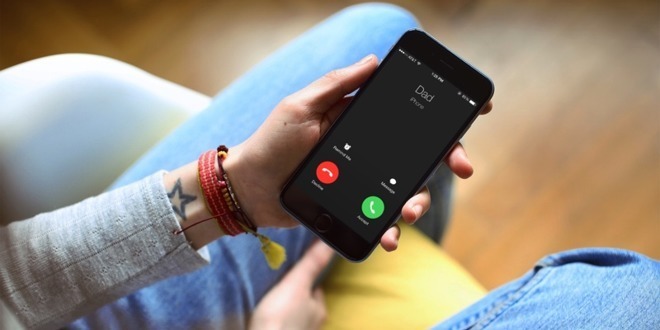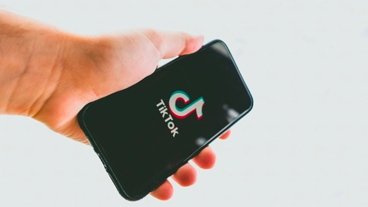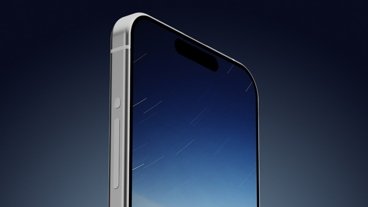Apple needs to examine the problem of smartphone addiction, former Apple executive and 'father of the iPod' Tony Fadell believes, suggesting the iPhone producer should come up with a way to combat unhealthy levels of device usage.
Acknowledging Apple founder Steve Jobs' dream of producing "a computer for the rest of us" from 1976 has been realized decades later via the mass adoption of smartphone, Fadell warns the success of hardware like the iPhone also introduces issues of addiction and overuse.
The addiction isn't just a "Facebook" or "Kids" issue, he writes in a Wired op-ed, as everyone has seen their lives changed since the introduction of the iPhone. The always-connected nature of email, messaging, shopping, and other services "seem benign" to Fadell, but suggests "we use them more than we know."
"There is no consensus on what constitutes healthy device usage. We need more data so that we can establish useful recommendations." Using healthy eating as an analogy, Fadell notes there is a lack of knowledge surrounding "digital nourishment," with no-one knowing what a "healthy, moderate digital life" looks like.
Noting the the existence of digital detox clinics in the United States, Fadell lays the responsibility on manufacturers and app developers, advising they need to step in before government regulators have the chance.
"I believe that for Apple to maintain and even grow its customer base it can solve this problem at the platform level, by empowering users to understand more about how they use their devices. To do this, it should let people track their digital activity in detail and across all devices."
Likening it to a "scale for our digital weight," Fadell insists users should be able to see how they spend their time with devices, and to moderate their behavior based on the data. This information could be presented in the form of a calendar with historical activity, itemized for each app or service, similar to how some health-tracking apps work for heart rate, sleep quality, and counting steps.
Fadell believes that Apple is "particularly well-placed to tackle this problem" because of the system-level control across devices. "Designing and building a tool like this won't be difficult: the pieces are already in place, and it would be far easier and cheaper than building a self driving car," the former executive and CEO of Nest suggests.
Highlighting Apple's business model oriented around hardware sales rather than getting users to spend more time with them, Fadell believes Apple will "sell more devices if it makes this kind of digital activity tracking available," due to the extra control such a monitoring system would provide.
"If Apple does the right thing, the industry will follow," the opinion piece concludes.
Critics have previously attacked Apple for helping drive so-called smartphone addiction, including a small-scale protest outside one major Apple store by students from Stanford University in March. The group of Stanford computer science majors claimed phone addiction causes stress, harms relationships, and undermines productivity. They, like Fadell, called on Apple to provide usage-monitoring tools to users.
In January, a pair of major Apple shareholders issued an open letter to Apple asking for a study into the impacts of heavy smartphone usage by children and teachers, citing a "growing body of evidence" that intensive phone use "may be having unintentional negative consequences." The shareholders also asked for Apple to consider implementing more parental restrictions into iOS, such as to limit screen time and social media access.
Apple already does offer some parental controls in iOS, for example limiting the types of apps and content a child can access, and the use of built-in features like location sharing. Parental controls in macOS provide far more restriction options, including screen time limits, scheduling, and app and website access, among other items.
 Malcolm Owen
Malcolm Owen







-m.jpg)






 Chip Loder
Chip Loder
 Wesley Hilliard
Wesley Hilliard
 Marko Zivkovic
Marko Zivkovic

 Christine McKee
Christine McKee
 Amber Neely
Amber Neely









54 Comments
Never understood this argument, what can Apple actually do? Surely it’s up to each user, and if you’re a parent who’s worried how much time their child is spending on phones or tablets then surely it’s your own responsibility to do something about it.
Who really cares what this guy thinks? He created something nice at Apple with iPod, left to create a crappy thermostat and sold it to Google and it went to further crap from there and then got ousted from his own company. Again, why does his opinion even matter?
The term “couch potato” was around long before smartphones were a thing and I don’t remember calls for TVs to tell people how long they had been sitting in front of one.
OMG Apple (and other companies) make a product, that is fun, useful, and has improved many many facets of our lives. We must curb its use!!! Sorry, not buying the argument that it is either an "addiction" or that Apple has to do anything about it. People use phones. A**H**** use the phone when driving or at the dinner table.
Tried to ban rock and roll, dancing any other way than old ballroom, tried to ban books some people don’t like, in other words, forcing one’s mores into everyone else. Blaming Apple for everything bad is the norm but people need to look in the mirror to see who’s really at fault.